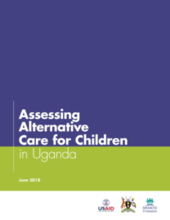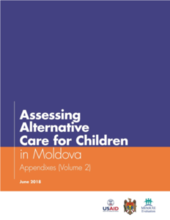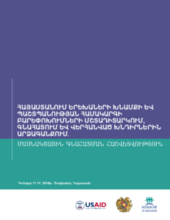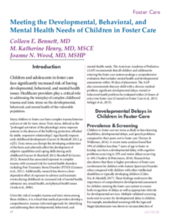Displaying 1221 - 1230 of 2221
In this article, the authors explore whether current relational health (connectedness) promotes positive outcomes for child welfare-involved youth while controlling for developmental risk (history of adverse, and lack of relationally positive, experiences).
This report presents the findings from an assessment workshop aimed at informing action planning to address high-priority needs identified in alternative care for children in Uganda.
This report presents the findings of an assessment workshop aimed at informing action planning to address priority needs identified in alternative care for children.
This comprehensive and authoritative book provides an accessible account of attachment concepts. It traces the pathways of secure and insecure patterns from birth to adulthood, exploring the impact of past experiences of abuse, neglect and separation on children’s behaviour in foster and adoptive families.
This report, in Armenian, presents the findings of an assessment workshop aimed at bringing together key stakeholders—decision makers, policy developers, service providers, civil society representatives, and donors—to assess and identify the main care reform areas in which action is needed.
This paper reviews the development, behavioral, and mental health needs of children in foster care.
This study aims to confirm the proof of concept within foster carers and to explore the potential risks associated with intent to continue fostering, overall job satisfaction and psychological factors (avoidant coping) that could be targets for interventions.
To understand what states are doing, the U.S. Juvenile Law Center created the National Extended Foster Care Review.
This thesis took on a meta-analytical approach to examine sources of heterogeneity between studies evaluating the effect of foster care on adaptive functioning, cognitive functioning, externalizing behavior, internalizing behavior, and total problems behavior.
This paper discusses the struggles of young women who are “crossover youth.” Crossover youth are children who are simultaneously involved in the foster care and juvenile justice systems.




